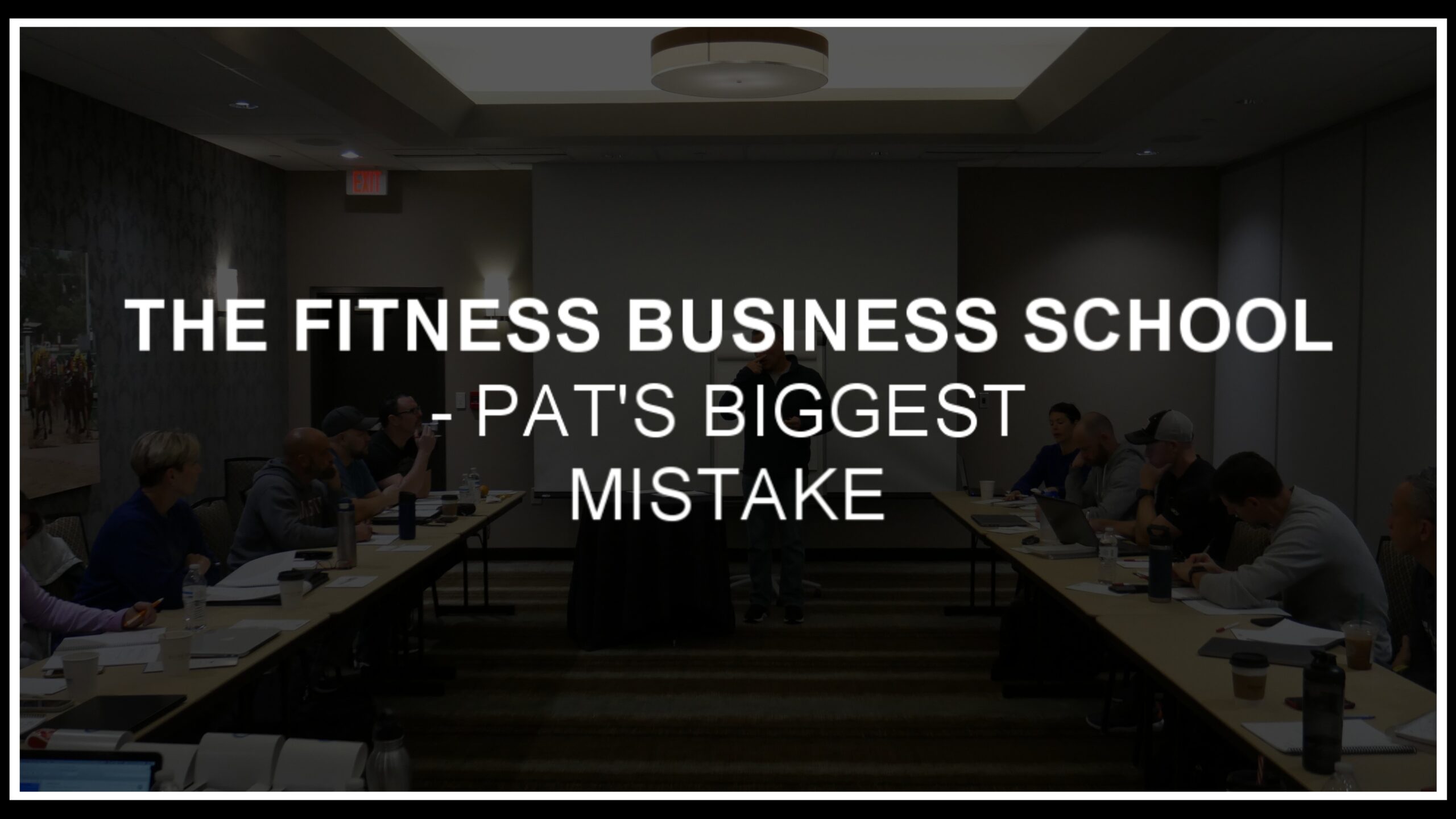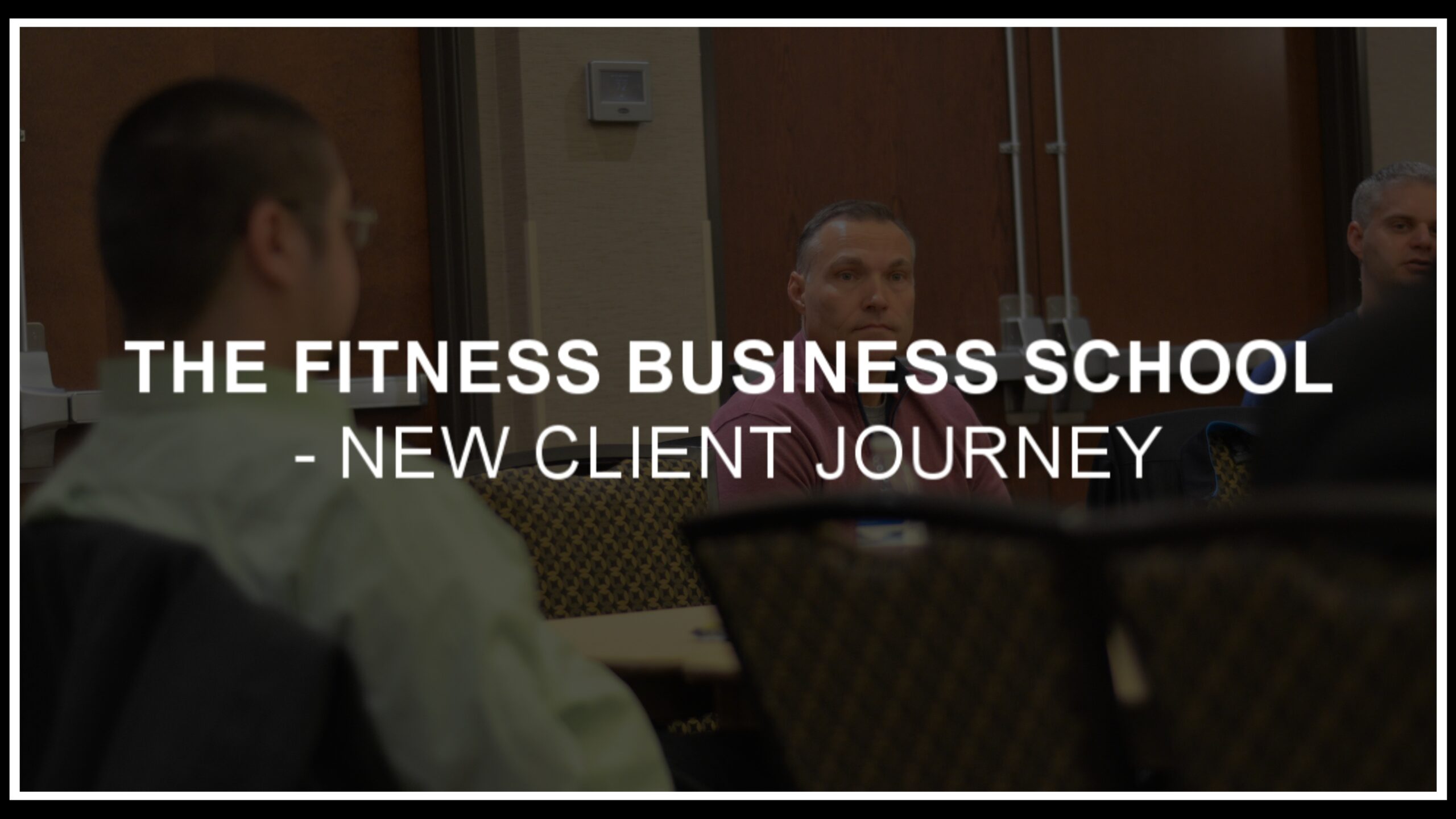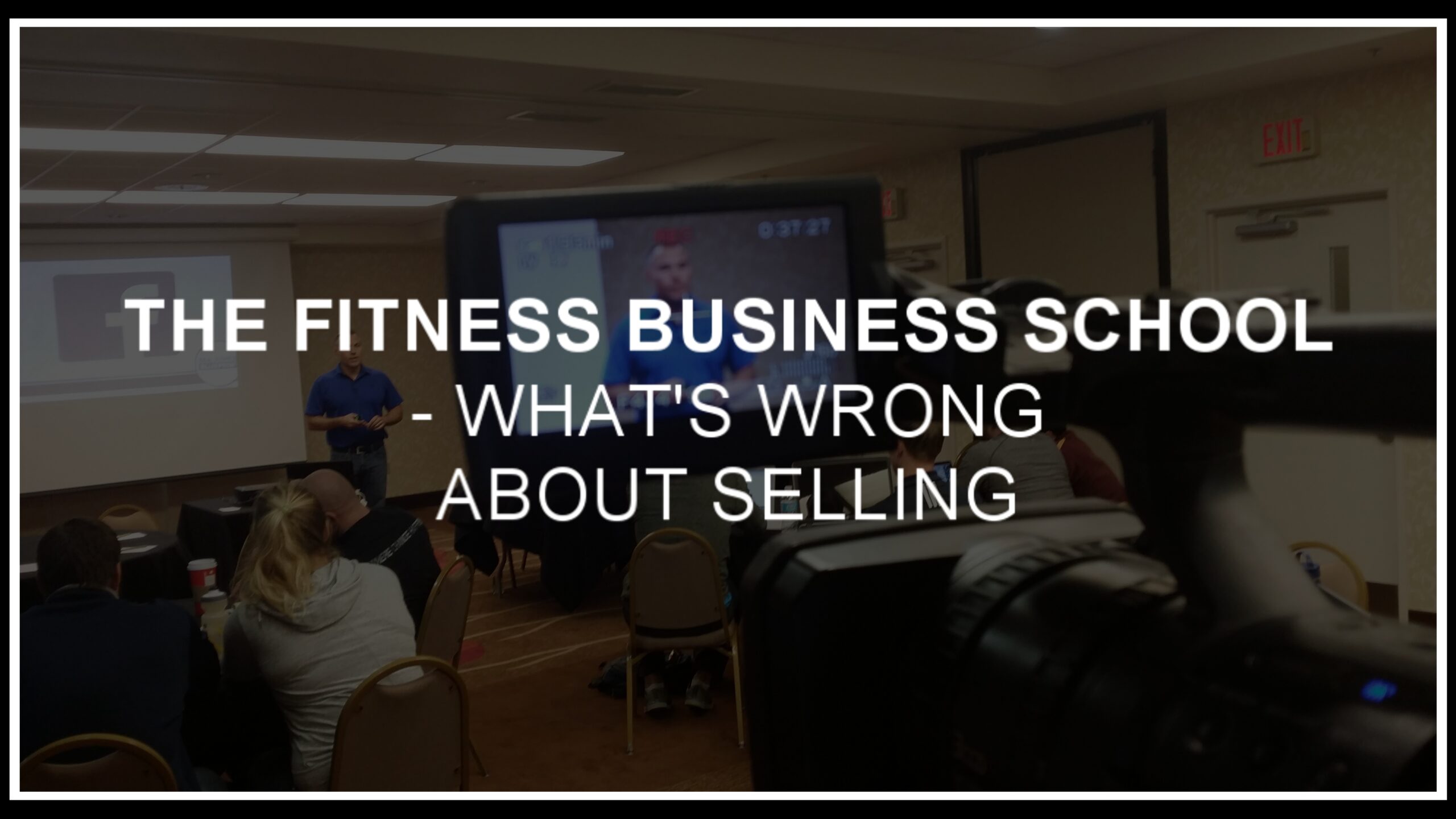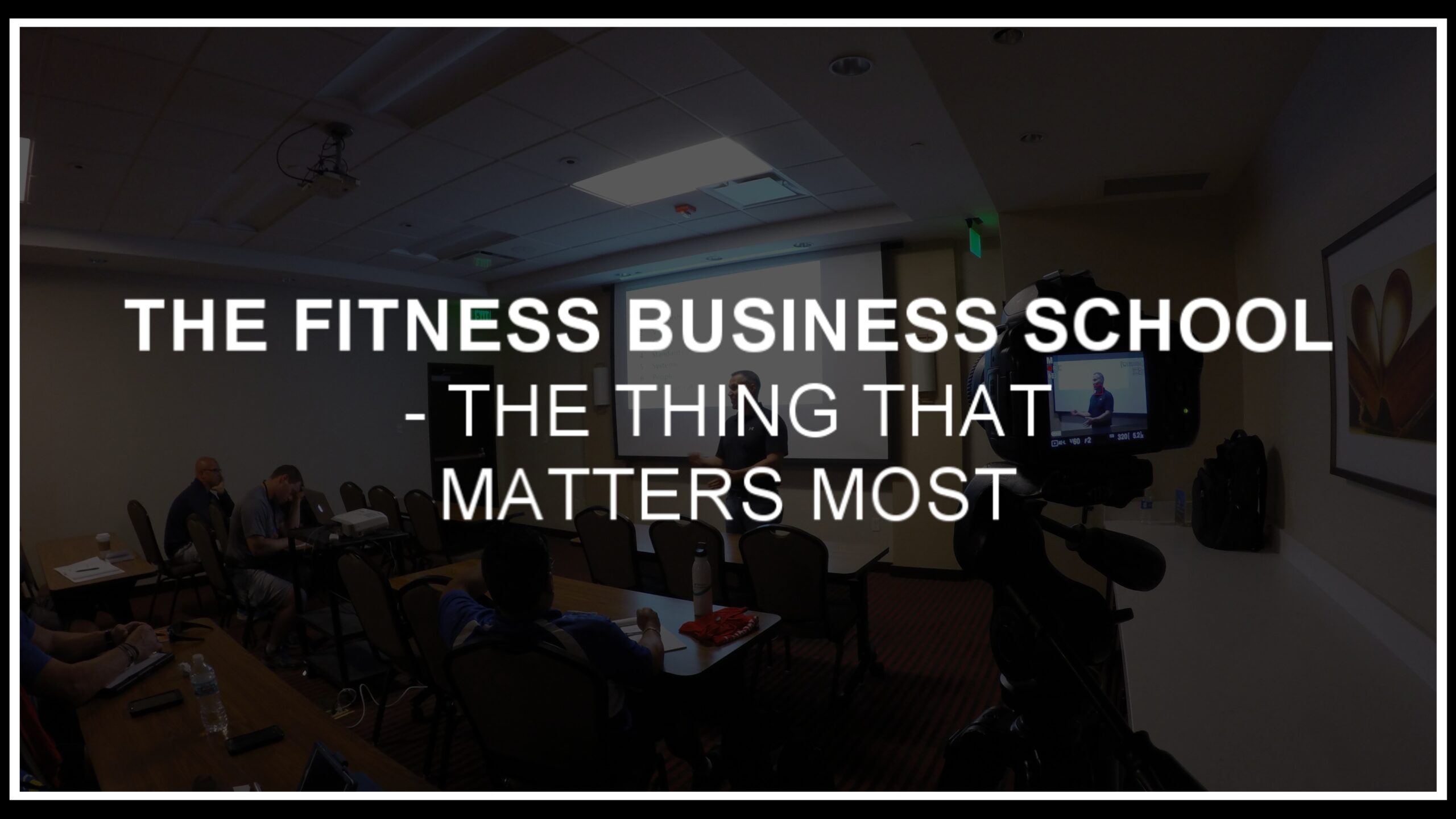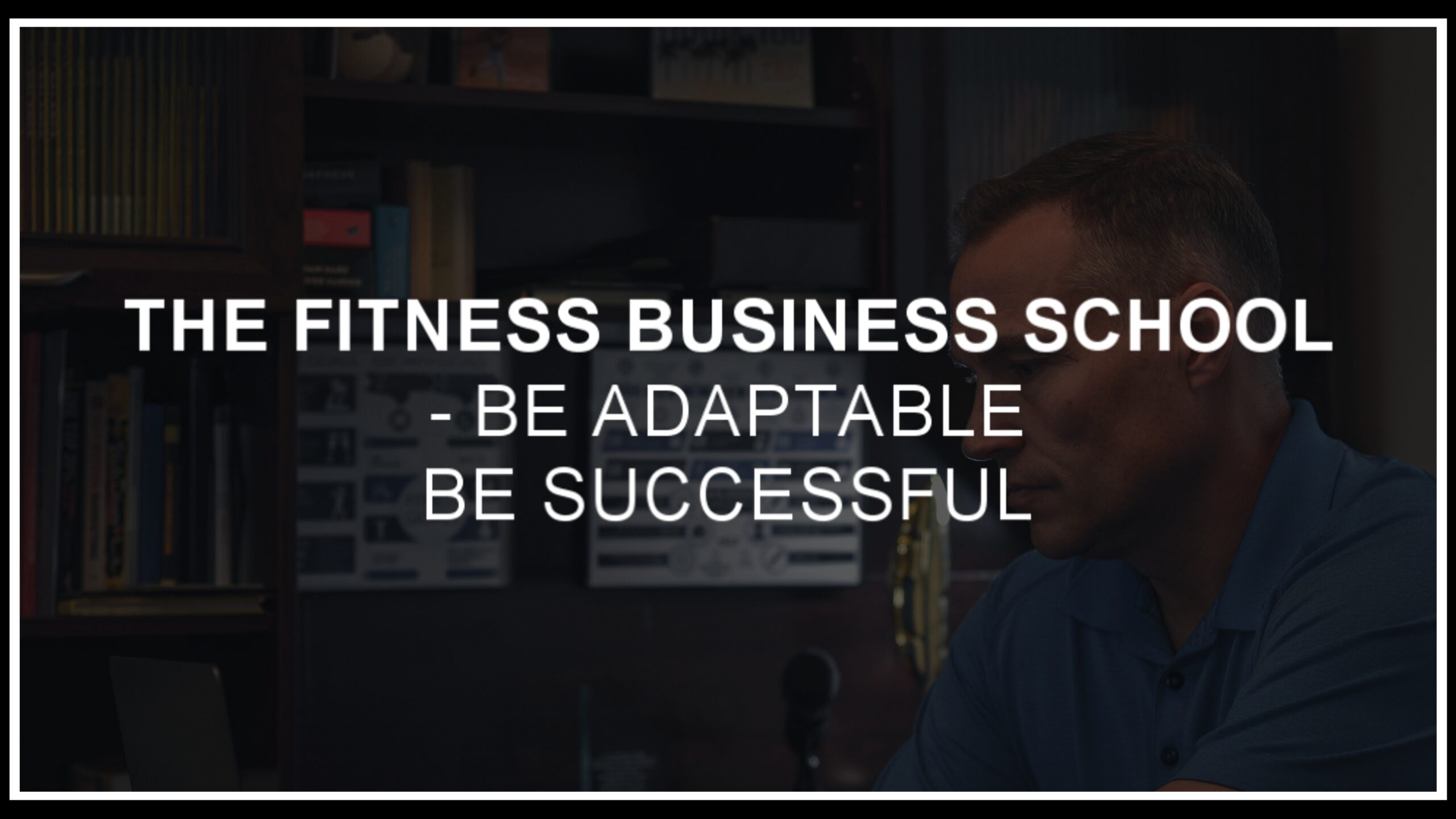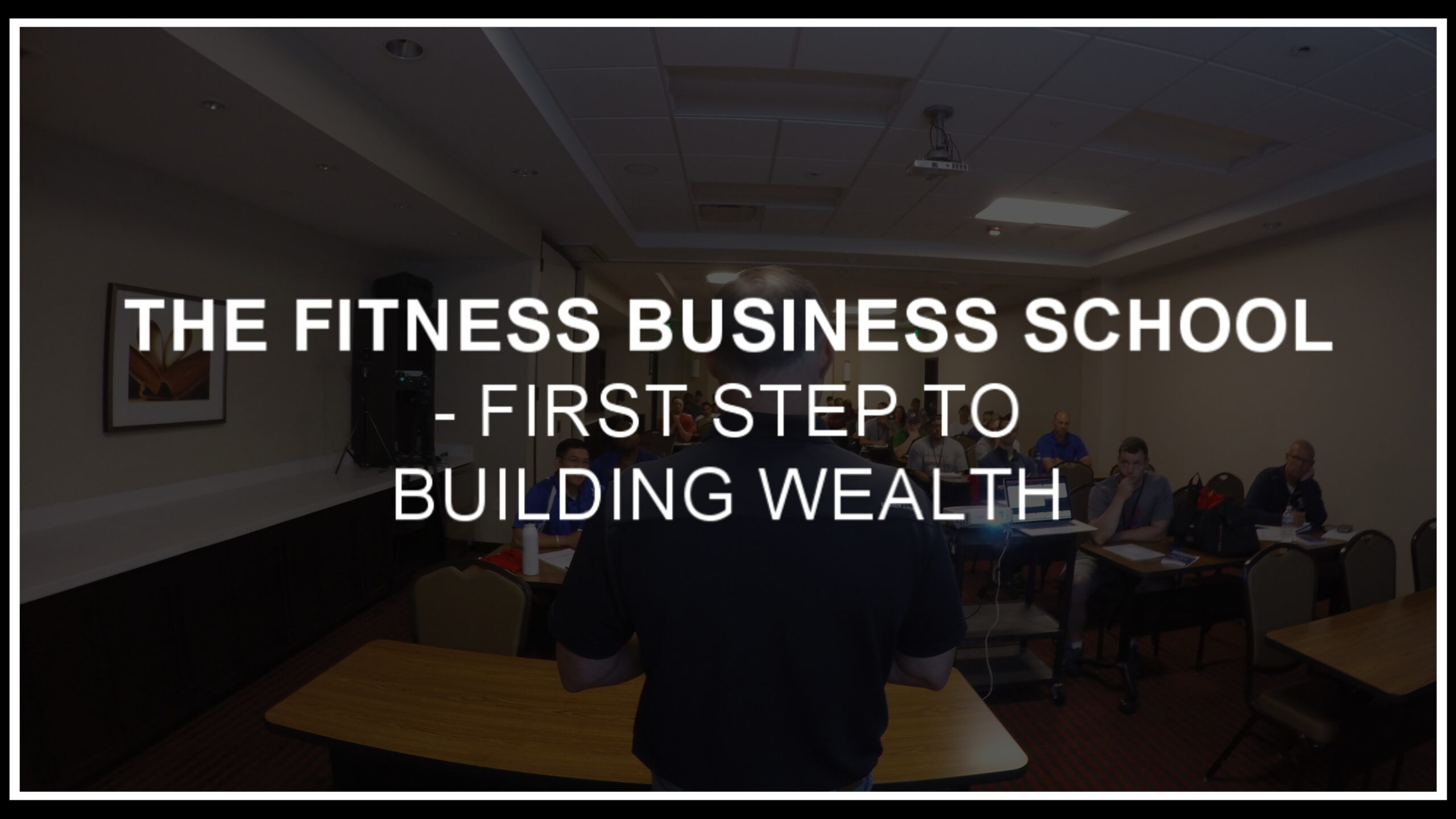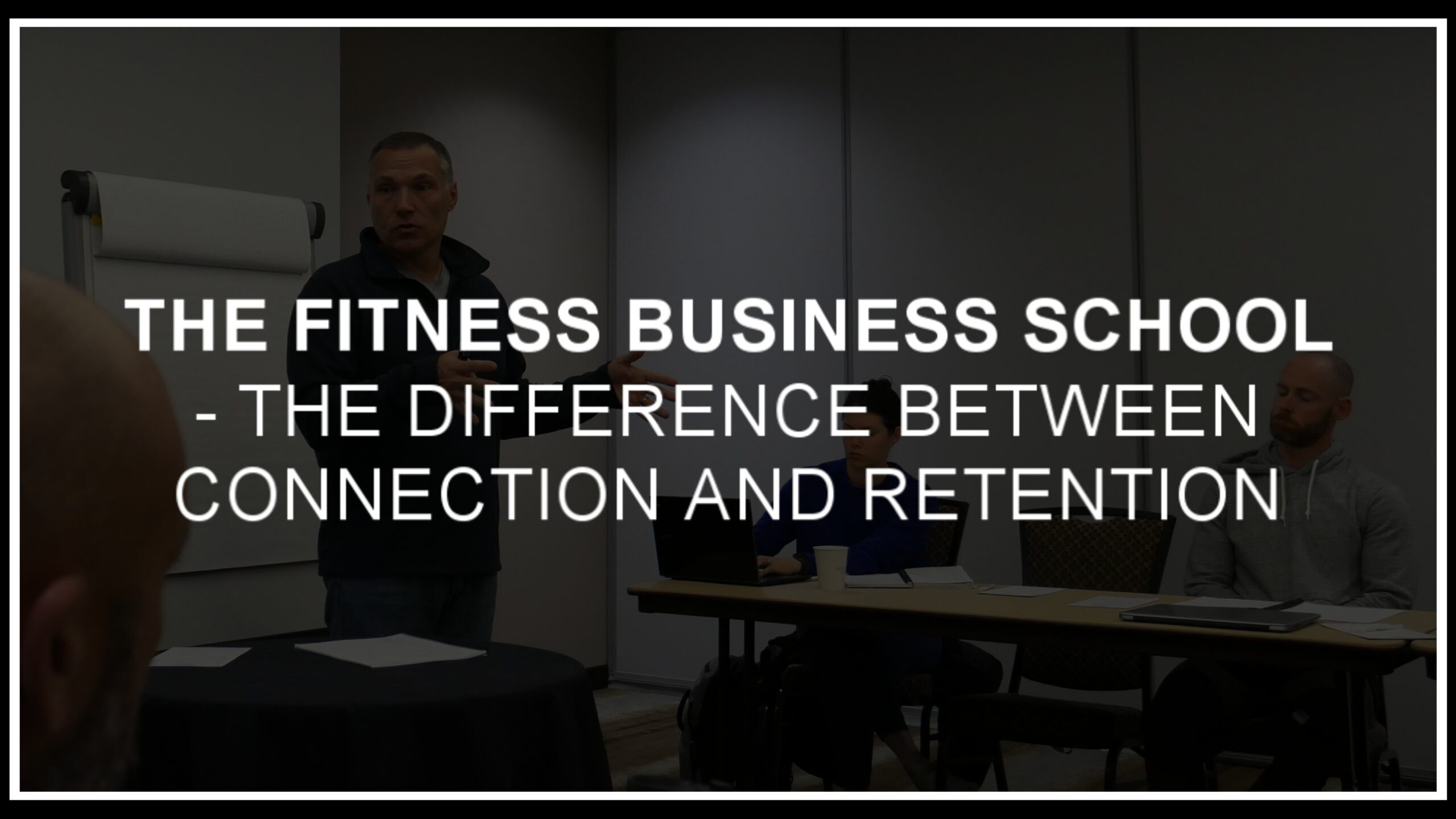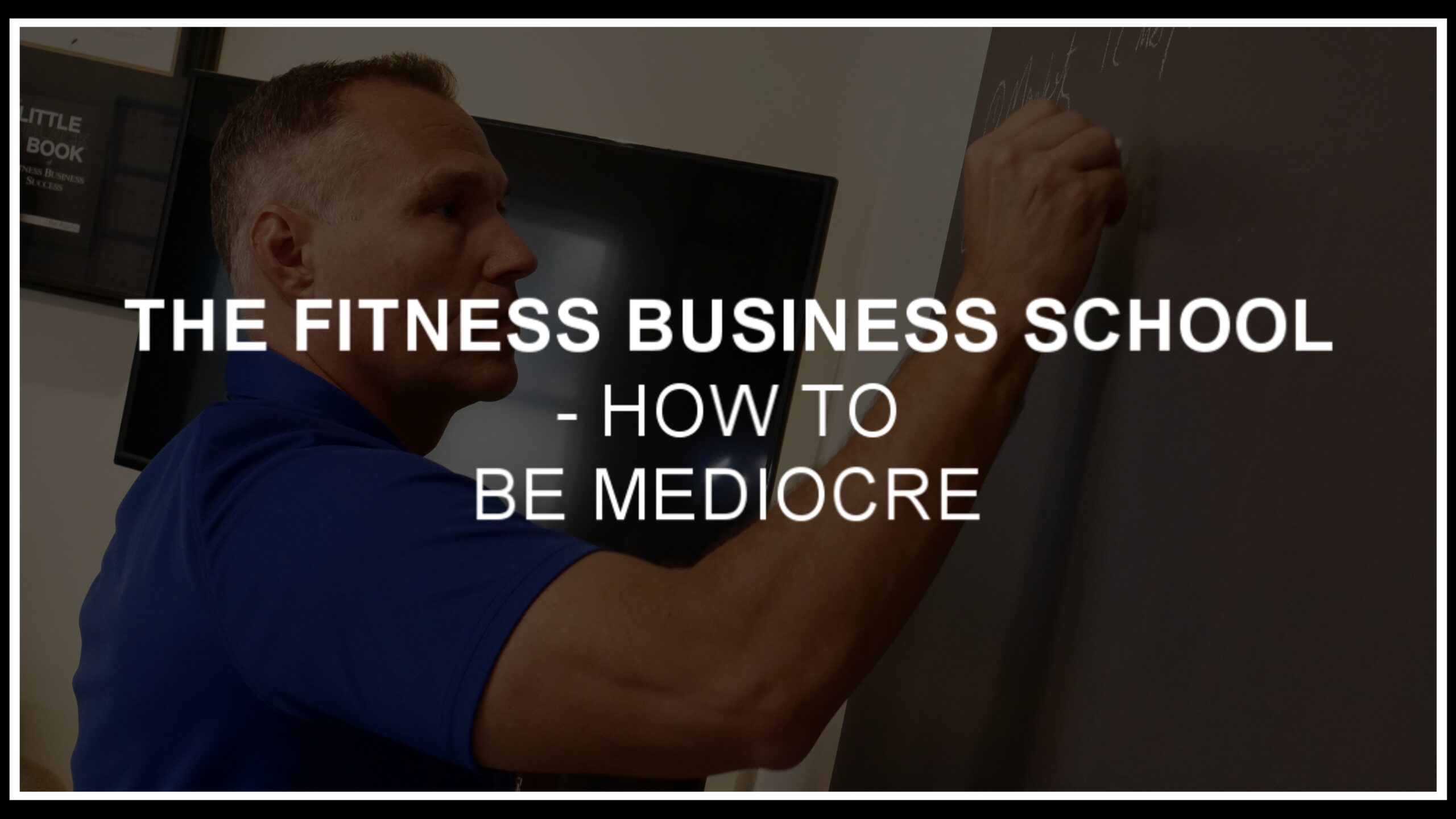Show Notes
- There’s a disconnect between “big business” and your business
- Pat saw the stress of small business on his father
- The similarities shaped Pat’s thinking and development
- You can live comfortably with a successful small business
- Getting a real understanding of small business will help you succeed
Full Transcript
Hey, Pat Rigsby here. And in today’s episode I wanna talk about what changed my thinking about small business. Let’s get started.
Welcome to the Fitness Business School podcast, the show for fitness business owners who want to grow their income, increase their impact and improve their lifestyle. Be sure to listen to the end of this episode because we have a brand new special offer exclusive for listeners. So stay tuned.
Probably about 10 years ago from the time I’m recording this podcast, I was in an interesting spot in in business. I was a co-owner of a kind of a, an organization that owned a few different businesses. We were growing franchises. We had about 275 franchise locations, which is a lot. I mean, I see some
franchises out there in the market, and they’ll talk about having a hundred or 150 franchises awarded. I’m talking about like 275 operating, not just awarded. I mean, so it a lot of moving parts. And it, it was one of those things where I started to look at a lot of the resources and, and I was around a few other people
that they studied. They were starting to dig in and try to learn more about business and, and just see it through different lenses, bigger businesses and stuff.
And I noticed that most of the education that was available out there in the business world was all centering around big business, big corporations, fortune 500 companies. And it was just very, very disconnected from the people that we were serving. And it might have been relevant for our business at a
time that was growing pretty rapidly, but for our clientele, the stuff that you would read about in the Harvard Business Review didn’t seem super applicable to the small kind of mom and pop type of business that was doing $150,000 annually in revenue. And there were even the, these companies that would go
and then talk about building systems for businesses and their targets were businesses that had like a revenue of 2 million to 20 million annually. And again, I mean those type in dollar a year business in their world was small in our world. That was big for the people that we were serving.
And I was home visiting my, my parents and, and some friends and happened to just go into my dad’s small business. And so for those who may not have listened to me talk about this before, my dad has owned a small auto repair business for about almost 40 years now, which is staggering. And I just, you
know, I’d always looked at the, his business through all these different lenses, not necessarily always positive ones, right? Because that was where I worked a lot of the time growing up originally as a janitor and then doing things like oil changes and breaks and that sort of stuff. And, and I saw the long hours that
he would work, and I saw the fact that he would not really take any time off and how much stress it caused him and my mom at the time before they got divorced and, and I thought, man, this is not at all what I want.
But then with age hopefully comes a little bit of wisdom. I I was able to, to come back there having gone through a lot of different things as a business owner. And I could look at this from like, through a completely different lens, right? I could look and see, okay, here is a business that a, you know, a guy
with no business background. My dad started because he was, he built it around a skillset that he had that he was pretty good at, which was fixing cars. And I thought, man, that’s a lot like the people that, that we encounter, right? A lot like the people that we serve. So many of these wonderful clients that I’ve been
able to connect with over the years, that’s them. And there was no business school for him to figure this out. He just had to figure it out as he went along.
And he was definitely a guy is, but I’m thinking about this in the, through the lens of him starting a business and operating a business during that first decade or so since that’s most of the people that I, would connect with, he didn’t graduate high school. So it wasn’t like, oh, I’ve got a degree in business
that I can fall back on and learn from, or even my, whatever the major you had, you at least have some coursework in it. None of that I just build around, Hey, this is what I’m interested in, this is what I’m good at, this is what I want to do. And build a business largely off working hard and trying to figure out how to
get people through the door and then trying to do a good job with the people that came through the door so they would keep coming back.
And I thought, man, this, the more I unpack, this feels a lot like the, the people that, that we work with. And at any given time, he may have a, a couple part-time, people helping like me during the summers or a little bit after school, if I didn’t have sports, my mom would come in and help do the books. A very kind
of part-time, but a very much a family business and typically 1, 2, or at most three other people working on cars like employees. And in, in a business that was about 4,000 square feet. So again, very similar small footprint, small staff, not, not a, not a complete one person operation, but definitely not what you
would see in the service department at a big car dealership or something like that. And, and so I looked at this and I said, okay, this is what the business owners that, that I work with, this is what they’re experiencing.
And in my case, I probably came at it from a different angle. At no point in time did I ever think, Hey, I’m gonna have one facility. I’m gonna have one training business and this is gonna be my livelihood. It just never even crossed my mind When I got into business ownership. I mean, the first one was operating,
the second one was actually under construction. It was, so it was from day one, it was like, Hey, there’s one operating and one in the works. And the intention was always to grow in some way, shape, or form. And it morphed what that looked like over time. That’s not usually the case with a lot of the people that
we work with. So I kept digging into to his business and thought about this and man, okay, he’s been able to be debt-free, build a nice nest egg for himself.
He certainly has, if I think about what somebody can do for, with a small business, he’s put enough money away for retirement and has enough equity in the things that he has. He owns his building, which isn’t always that common in the people that we work with. But so he’s definitely in a place that at
retirement age, he could have easily retired. And what he did during his journey as a business owner would’ve funded a very financially secure retirement. And the interesting thing about it was a business like that is very much centered around the owner operator is not super saleable. It’s not that valuable to
the person buying it. It’s not that you can’t get anything for it, but it’s way more valuable to you as the operator than it would be to somebody you’re handing it off to. Because a lot of the loyalty is to the proprietor.
And so, again, very much like our businesses. And so I started to think about the way that I coach business for independent business owners, and it was like, man, it would be like speaking a foreign language to the, the people producing the Harvard Business Review or writing all these books on
Fortune 500 companies. They’d be so unfamiliar with how this works. They’d be unfamiliar with the money, stress associated with some of this, or how they’re generating business or what they do to keep business moving forward, keep, you know, putting money away to feed retirement and that sort of
stuff. And so when I think about business, that’s where I come from and that’s why I’ve built this whole concept of creating your ideal business and the way that we teach marketing and the way that we teach operations. And what’s great is understanding that kind of small business is, I think it’s been one of the
more valuable lessons that I’ve learned.
And who would’ve guessed that the same place that I had great disdain for when I was sweeping the floors when I was 14 would give me so many lessons a a little bit later on. And man, it’s been very encouraging because I know that if you do it right, if you build a business around a simple and sound
infrastructure and you are good at what you do and you provide a good service and you do enough of the right things to keep people coming through the door, you can build great financial security for yourself. You can have a business doing the things that you enjoy doing. You can create a business that allows you
to have some flexibility. I wouldn’t call it freedom because you’re still responsible for what you’re responsible for, but some flexibility in your schedule so you can go be present in your kids’ dance recitals or baseball practices or whatever else.
You can take vacations. And at least from my perspective, that’s a lot of what we want as a business owner. We want more control, we want more opportunity to move the needle in the areas that are important in our life. And I would encourage you, I want to bring this back to the beginning and
encourage you to, like, when you’re studying businesses, when you’re studying how to improve, I mean, you can certainly, like I study a lot of hospitality businesses, I study a lot of businesses. I’ve been a big fan of the way that Disney operate operated with their staff and their customer experience. You can study
a lot of the bigger businesses, but I mean, the reality is what works for Apple isn’t necessarily gonna translate to small business. What you’re gonna find in the Harvard Business Review isn’t necessarily gonna translate to your 2,500 square foot semi-private facility.
And so I would study some of the small businesses that do well, some of those small service businesses, small local businesses, people who’ve been able to stay in the test of time and they’re are so many lessons to be had there. And, and when you’re picking, hey, who I’m gonna work with,
whether it’s me or any other coach, figure out, I mean, do these people get you? Do they know what your life’s actually like? Do they have any sort of insight into where you are and where you want to go? Because if they don’t, they’re going to potentially steer you towards building what they consider a
success that may very well make you miserable.
Thanks for listening to this episode of The Fitness Business School.
Before you go, I have a quick announcement:
One of of the things that we’ve been doing with our current clients is taking them through this Ideal Business diagnostic and really what it is, this checklist that allows you to pinpoint exactly what your business needs next so you can keep improving, keep growing, and build a business that you love to own, one that pays you well, one that allows you to have the impact you wanna have and one that allows you to have a lifestyle that you truly enjoy.
In this diagnostic, we walk through everything and we do an evaluation and can instantly pinpoint what you need to do next to build that business that you want. I’m going to extend this opportunity to get on with either me or my team and take you through this evaluation and fix your business’s most vital needs fast.
So if we take you through this, you’re gonna be able to make those vital changes that you need to finally have what I call your Ideal Business. If you’d be interested in going through this entirely free, risk-free diagnostic with us and learn what you already have in place, what you’re doing well and where are your greatest opportunities for rapid improvement are just shoot me an email with diagnostic in the subject line to [email protected].
Again, an email to [email protected] with diagnostic in the subject line will get you scheduled and take you through this evaluation to help you build the business you want.


